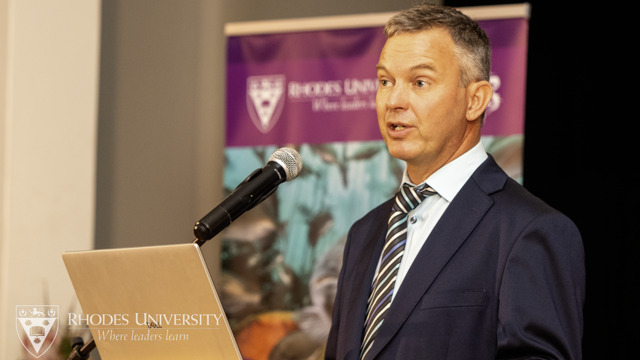
Professor Warren Potts has been appointed the Oppenheimer Chair in Environmental Justice for Africa’s Coastal and Inland Fisheries. The Chair has been established through the Benjamin Raymond Oppenheimer (BRO) Trust facilitated by Oppenheimer Generations Research and Conservation (OGRC).
The Chair is hosted at Rhodes University in the Department of Ichthyology and Fisheries Science and is underpinned by a R9million investment over six years. The significant investment is in recognition of the pressing environmental challenges facing Africa’s inland and coastal fisheries which in turn are making communities, who are reliant on these declining resources, highly vulnerable.
The aim of the Chair is not only to promote environmental justice but change how aquatic systems are both understood and governed. This is critical since many of South Africa’s fisheries are structured according to a top-down research model that not only excludes users such as subsistence and small-scale fishers but also largely ignores the interconnectedness of conservation problems and human behaviour.
Key objectives of the Chair include:
- Advance environmental justice in fisheries: develop research, policy reform, and leadership training, and co-design data systems that empower fishers directly.
- Preserve ecosystems and protect livelihoods: investigate how best to promote resilient fisheries socio-ecological systems, integrate aquaculture, advance access rights, and subsistence use.
- Reform governance of South Africa’s aquatic systems: develop policy briefs on equitable management strategies, guidelines for incorporating traditional knowledge into governance and training for fishers, researchers and managers.
- Translate government policy into action: help government agencies through designing usable plans, building capacity, and ensuring that inland fishers don’t just exist on paper.
Professor Potts is well-positioned to take on this role with over two decades of experience in aquatic systems from fieldwork in post-war Angola to pioneering citizen science in South Africa’s angling communities. During his fieldwork, Professor Potts recognised how “unless we address human behaviour, we’re not going to solve issues of conservation”, concluding that we need a “system that incorporates the human dimension right from the start.” This mindset is reflected in the parameters of the Chair as it will focus on balancing ecological conservation with the socio-economic needs of vulnerable communities.
Commenting on the new appointment, Dr Kwezi Mzilikazi, Deputy Vice-Chancellor for Research and Innovation and Strategic Partnerships at Rhodes University said, “The new Oppenheimer Chair is a transformative opportunity for the university and reflects our historical strength in aquatic sciences from freshwater to marine”, adding “it will enable us to move beyond traditional conservation models, recognising that rivers, lakes and fisheries are social, cultural, and economic lifelines along with being ecological systems.”
Dr Duncan MacFadyen, the Oppenheimer Generations Research and Conservation Head shared his enthusiasm for the creation of the Chair and said, “The Oppenheimer Family through Oppenheimer Generations Research and Conservation are long-time supporters of conservation research that is accountable, inclusive, and practical. The appointment of Professor Potts as the first Chair in Environmental Justice for Fisheries is hugely exciting.” He added, “This innovative research approach that anchors environmental sustainability in social justice brings us one step closer to building resilient ecosystems and equitable fisheries across South Africa.”
The long-term vision is to use the Oppenheimer Chair to catalyse a larger initiative, creating a Centre of Excellence that cements Rhodes University as a leader in fisheries science that meets the needs of the African continent. Progress on achieving this goal is already underway with Professor Potts beginning to recruit students for the Chair.
